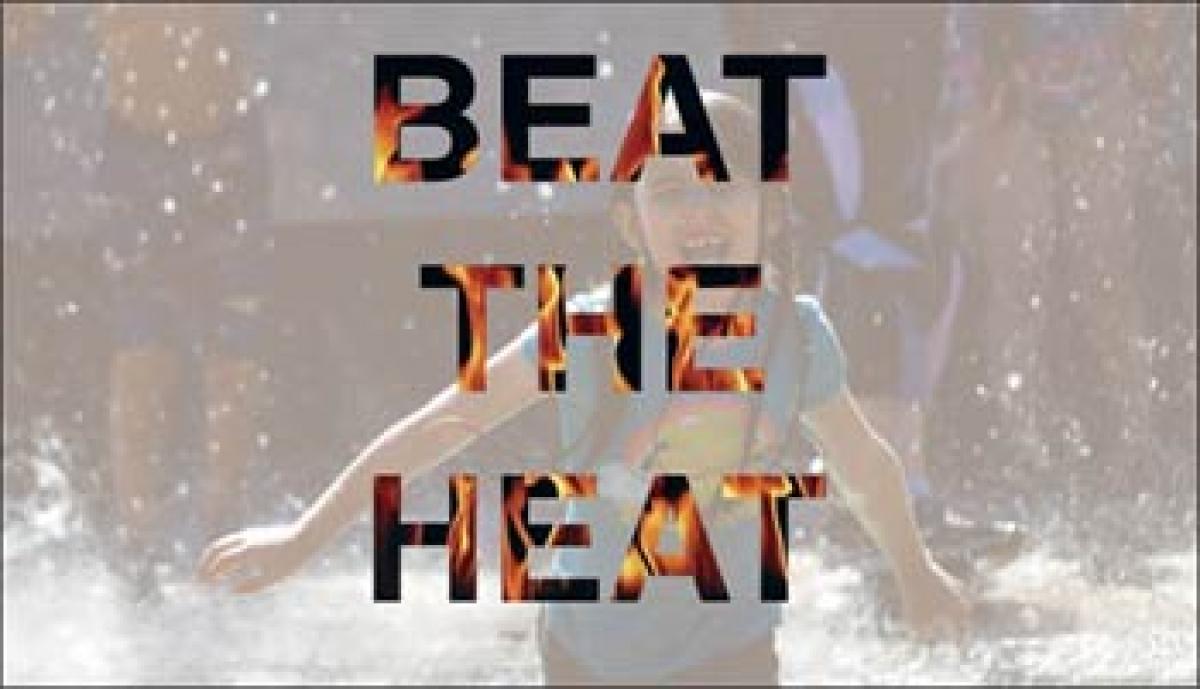Live
- Job mela at Masab Tank tomorrow
- New toilets facilitated for MPP school students
- Steps to safeguard natural springs gain momentum
- RWAs want officials to clear fog over SCB-GHMC merger
- Tanks, canals remain neglected despite execution of MGNREGS works
- BRS to celebrate Deeksha Diwas on Nov 29, Dec 9
- NCC Day grandly celebrated at SITAM
- CITU demands rollback of strategic sale of VSP
- 7-Year-old girl sexually assaulted in Tirupati
- PM Modi highlights govt's efforts to make Odisha prosperous and one of the fastest-growing states
Just In

This summer is expected to experience record rise in temperatures calling for preventive measures to mitigate the associated health risks.
This summer is expected to experience record rise in temperatures calling for preventive measures to mitigate the associated health risks. Especially the vulnerable population should be protected at all cost. The National Disaster Management Authority of India (NDMA) defines a heat wave as a period of abnormally high temperatures, more than the normal maximum temperature that occurs during the summer season.
The extreme temperatures and resultant atmospheric conditions adversely affect people living in these regions as they cause physiological stress, sometimes resulting in death. The health impacts of heat wave typically involve dehydration, cramps, exhaustion and sun stroke. People need to be educated on measures to minimise the impact during the heat wave and to prevent serious ailment or death because of heat stroke. Experts suggest many such measures. Governments and civil society organisations have to give wide publicity to these measures.
Such measures can include: Avoid going out in the sun, drink sufficient water and as often as possible even if not thirsty, wear lightweight, light-coloured, loose and porous cotton clothes, use protective goggles, umbrella, hat, shoes or slippers while going out in the sun, avoid strenuous activities when the outside temperature is high, avoid working outside between 12 noon and 3 p m, carry water with you while travelling, avoid alcohol, tea, coffee and carbonated soft drinks, which dehydrates the body, avoid high-protein food and do not eat stale food.
Many of these simple measures can help in beating the heat waves. The working class needs to be provided with such protection. The reports of death of NREGA workers reveal the absence of such basic measures to combat the problem. People should also be educated on the measures needed for treatment of a person affected by sun stroke. Lay the person in a cool place, under a shade. Wipe with a wet cloth or wash the body frequently. Pour normal temperature water on the head. The main thing is to bring down the body temperature.
Give the person ORS to drink or lemon sarbat or whatever is useful to rehydrate the body. The patient needs immediate hospitalisation, as heat stroke can be fatal. The phenomenon of ‘climate change’ is increasing the possibility of heat waves. All government authorities have to be trained in early warning system and preparedness plans. Immediate and long term measures have to be initiated. Such an effort should include: Building public awareness and Community outreach; Initiating an early warning system and Inter-agency coordination; Capacity building among health care professionals; Reducing heat exposure and promoting adaptive measures.
Targeted policy interventions can increase information-sharing, communication, preparedness and response coordination to improve the most vulnerable population’s resilience to rising temperatures. The local bodies have to develop their own action plans. Specific needs and risks of each vulnerable group of citizens have to be addressed.
The Central and the state governments have to provide necessary material, financial and medical resources to combat the devastating impact of heat waves on the population. Even livestock and agriculture have to be protected from this disastrous effect to ensure minimal impact on the economy of the vulnerable groups. The time has come to consider even extreme heat events as disasters.

© 2024 Hyderabad Media House Limited/The Hans India. All rights reserved. Powered by hocalwire.com







